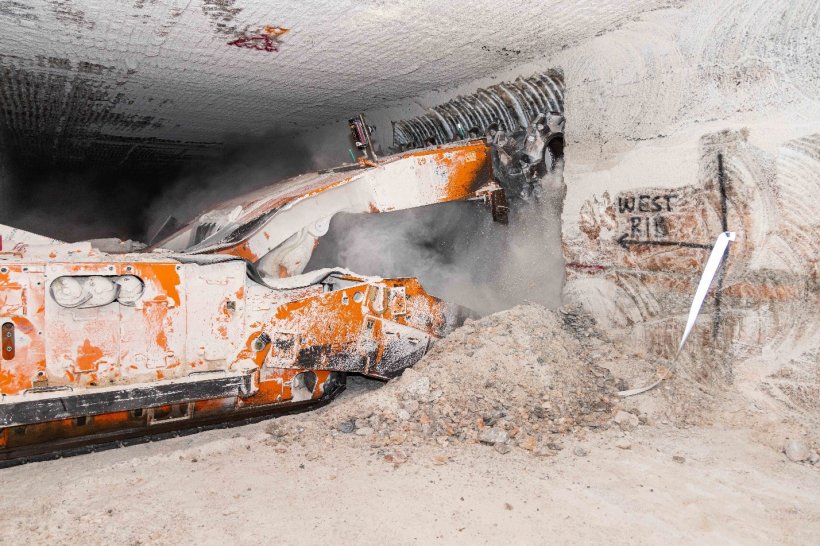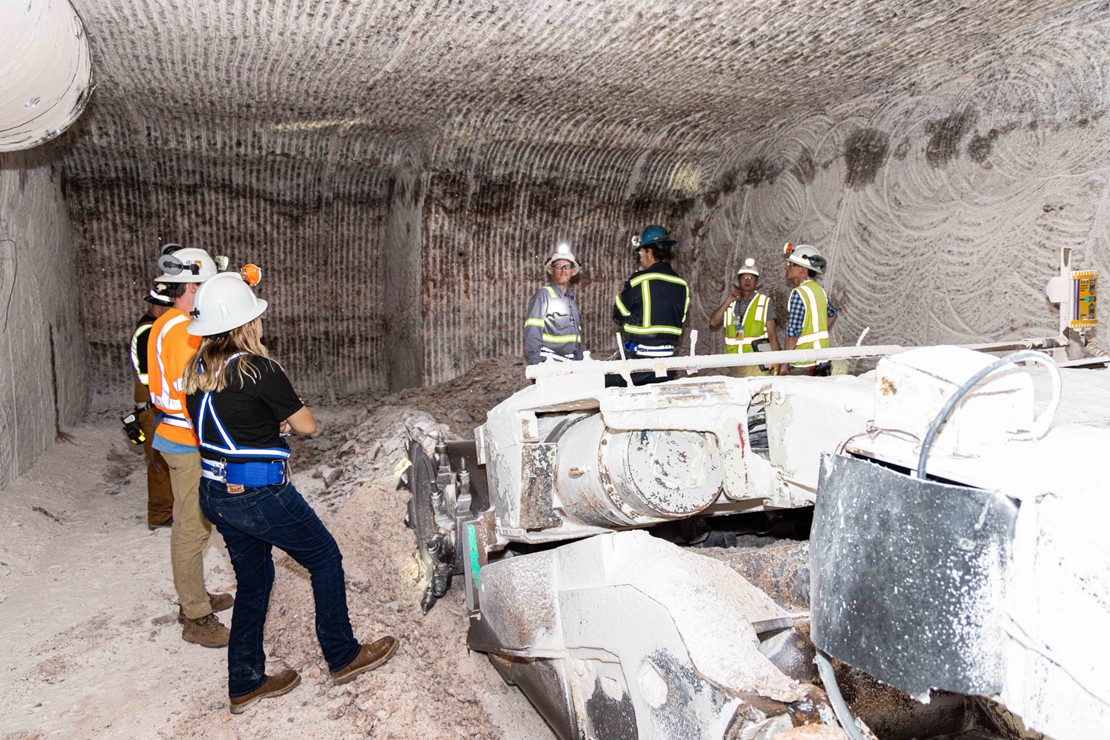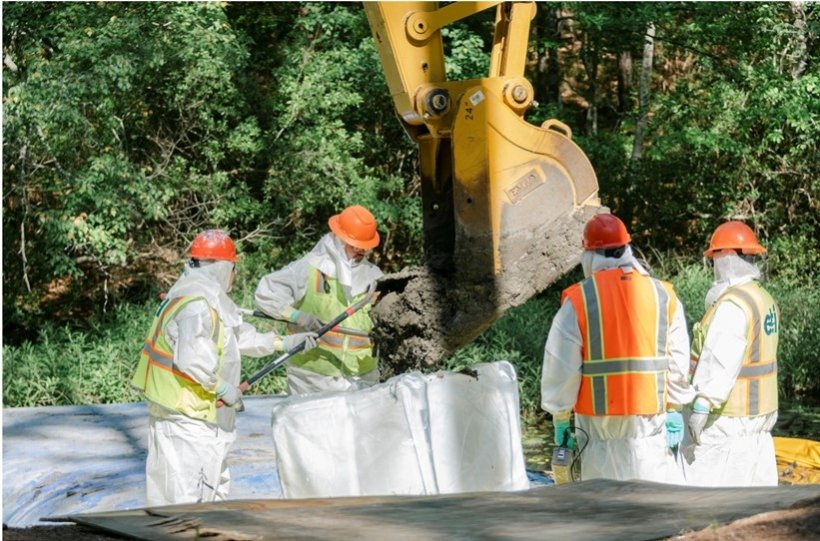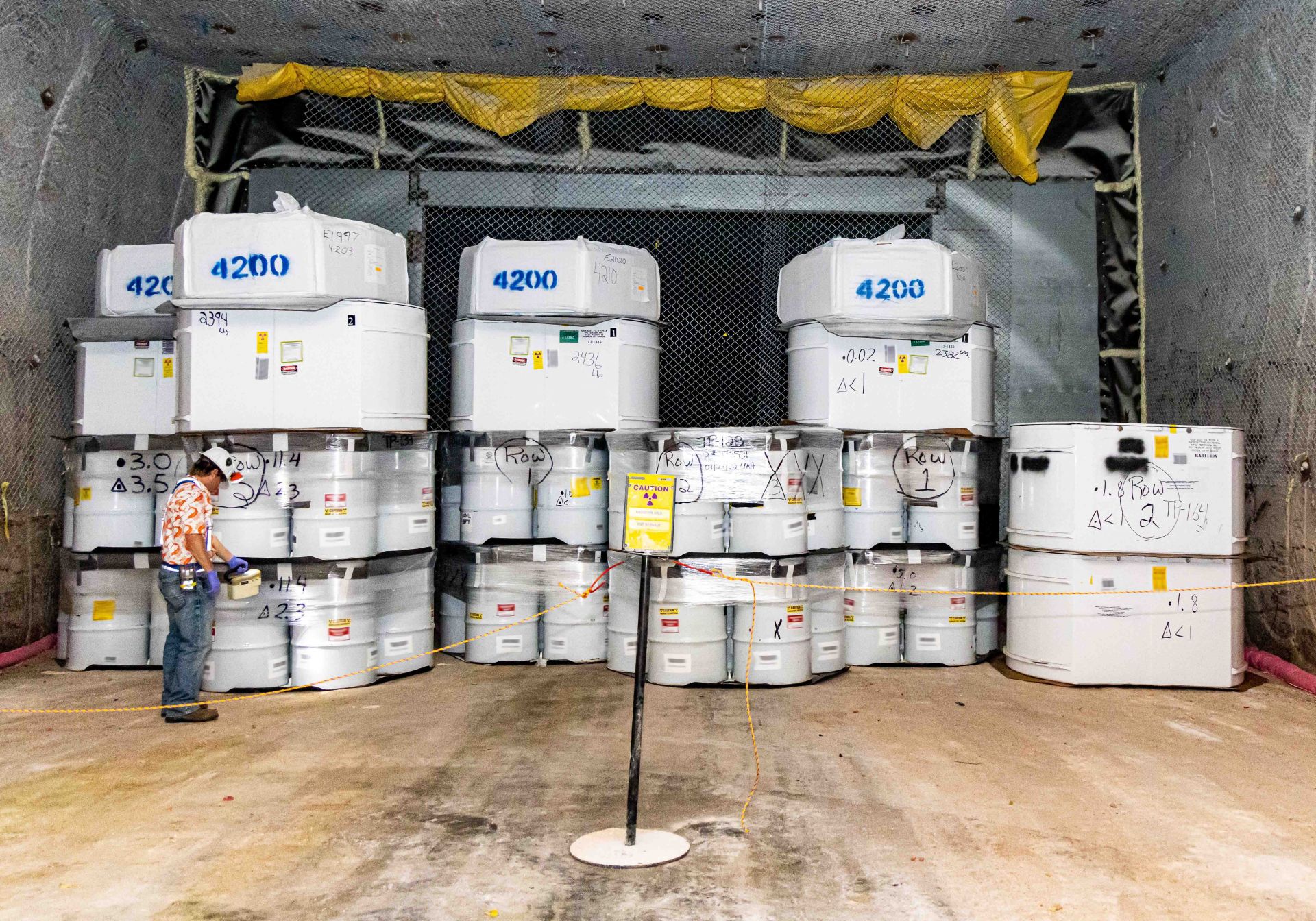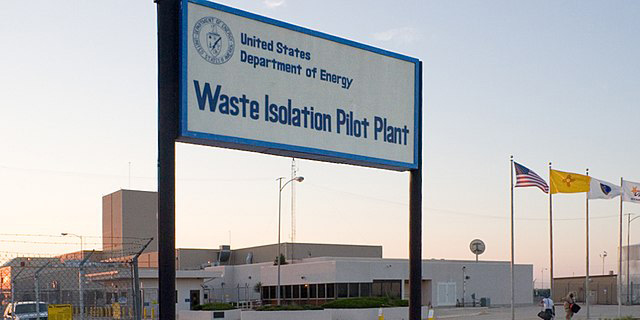A continuous miner machine cuts into salt rock as mining begins on Panel 11, one of WIPP’s next waste disposal panels. (Photo: DOE)
For the first time in a decade, crews have started mining a new disposal panel at the Department of Energy’s Waste Isolation Pilot Plant (WIPP) in New Mexico, the nation’s deep geologic waste repository for defense-related transuranic waste.
Mining crews view progress in an ongoing mining tunnel, known as a drift, at the WIPP facility in New Mexico. (Photo: DOE)
The New Mexico Environment Department (NMED) signed a final order approving a 10-year permit renewal for the Waste Isolation Pilot Plant (WIPP), the nation’s deep geologic repository for defense-related transuranic (TRU) waste.
Workers remove contaminated sediment from the SRS in South Carolina. A $19 million DOE grant will support state monitoring of the site. (Photo: DOE)
The Department of Energy’s Office of Environmental Management has awarded nearly $54 million in noncompetitive financial assistance grants and cooperative agreements to help support the office’s cleanup program. DOE-EM is responsible for environmental legacy cleanup of the effects of decades of nuclear weapons development and government-sponsored nuclear energy research.
The Waste Isolation Pilot Plant, near Carlsbad, N.M. (Photo: DOE)
The Department of Energy’s Office of Environmental Management and the New Mexico Environment Department (NMED) have negotiated a settlement on terms to renew the 10-year operating permit for the Waste Isolation Pilot Plant near Carlsbad, N.M. The DOE, along with WIPP’s operating contractor, Salado Isolation Mining Contractors, and the NMED negotiated the settlement with New Mexico stakeholders.
A radiological control technician checks radiation readings on waste containers at WIPP. (Photo: WIPP)
The New Mexico Environment Department (NMED) is adding several conditions to the operating permit for the Department of Energy’s Waste Isolation Pilot Plant (WIPP) near Carlsbad, N.M. The permit changes, which would prioritize the disposal of transuranic (TRU) waste generated in the state and limit the repository’s capacity, are contained in a fact sheet the NMED.
